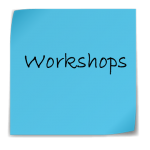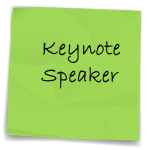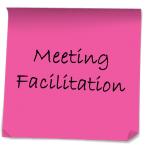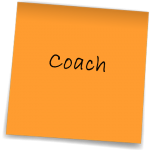Q. Can you adapt your workshops to my needs?
I’d love to! When a client contacts me about a training program, I help them identify their specific objectives, the potential audience, and the type of real-life examples that will be relevant. In my research, design, and delivery, I tailor my workshops to meet the unique goals of the client. It’s one of the advantages of working with me.
Q. Who should attend the workshops and how do you engage them?
Adults learn when and what they want to learn. They can be inspired by an engaging and energetic facilitator. Getting adults excited about learning new skills is what I do best. By being real, using humor, listening, offering a variety of learning activities, and constantly highlighting the benefits of the skills, I help employees revive their commitment and growth. Participants in my workshops stay engaged and learning.
Having the right people attend the workshop helps you maximize your training dollars and see change. I work closely with clients to help them consider who should attend the workshops. I encourage them to go beyond their usual suspects and include anyone who might benefit from a topic. I also advise them to solicit input from employees about their own learning goals and how they learn best. This can help shape the workshop.
For example, I believe customer service is everyone’s business. Thus, I encourage both front-line employees and management to participate in workshops that build these skills. Employees learn valuable skills and are inspired by seeing their managers attend the workshop. Managers are better prepared to model the skills and provide feedback to their employees back on the job. This united effort can make customer service a living priority for each of them and their organization.
Q. How long do your workshops last?
It depends! I’ve provided one-hour lunch and learn sessions to courses that have lasted 40 hours. I’m happy to consult with my clients on the appropriate length of any workshop. Critical aspects to consider:
1. Your specific objectives: What do you want your employees to know, do, and think after the workshop? There can be a huge difference between what we know and what we do consistently. I believe in the importance of incorporating practice into workshops to support people in changing behaviors and building skills.
2. Your audience: When do they usually work? How’s their attention span? How many people need to attend the training? What else are they dealing with in the workplace? When is a good time of year/day for them to learn? Answering these questions can help you increase your success in fostering their learning and action.
3. Availability of logistics: Do you have an adequate room, resources, refreshments, privacy, etc. to support learning? All should be in place to maximize employee development.
4. Application of skills: What do you expect participants to be able to do after the workshop? How complicated or different are the new skills? Depending on the answers to these questions, I may suggest that we break up the content into several shorter sessions spread out over a few weeks to give employees the chance to digest the information, practice on the job, and then come back to the workshop to discuss what worked and what might still be a challenge for them.
Q. How much do you charge?
I’d be happy to talk with you individually about your needs and give you a cost for my services. My costs vary on the length and scope of the project, how much tailoring is involved, and whether or not you’d like me to consult with you on pre-assessments or follow-up. Please contact me at nkacatalyst@msn.com or 207-272-5009 and we can discuss your needs further.
Do you have questions of your own? If so, contact Nancy Ansheles: email nkacatalyst@msn.com or call (207)272-5009




